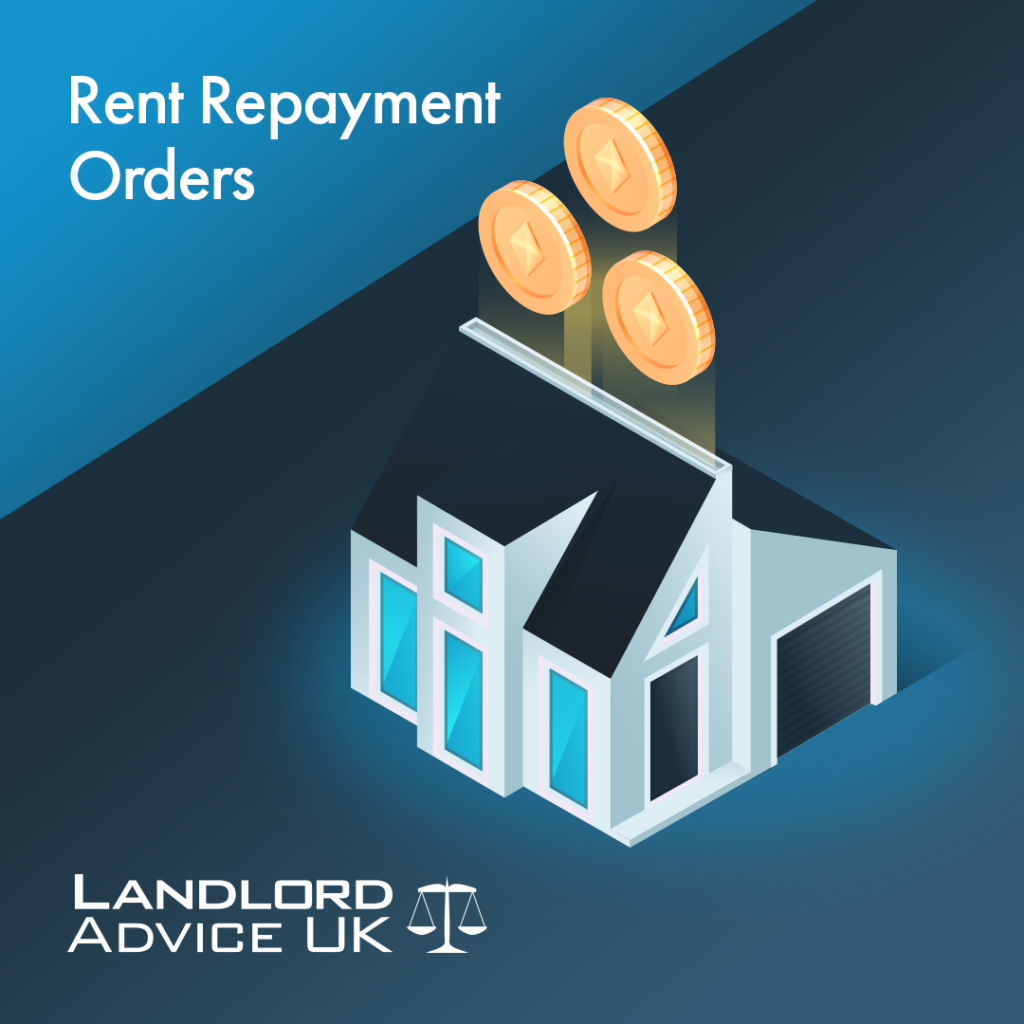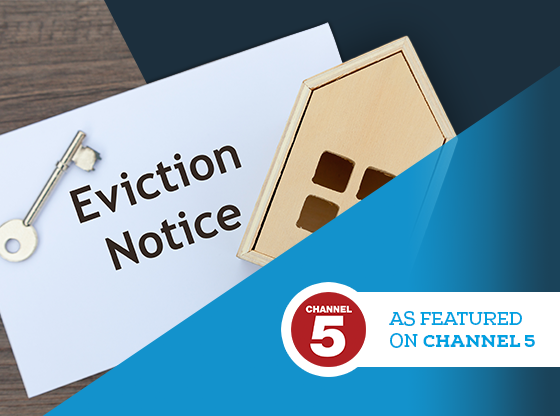Rent Repayment Order for Failure to Obtain a License
There are various defences available to landlords who find themselves Respondent to an application for a Rent Repayment Order for Failure to Obtain a License being made against them.
We previously wrote an article covering all the important things to know about an application for a rent repayment order here. We also have a page covering what a Rent Repayment Order is here.
The first thing to consider, is the standard of proof, which is the criminal standard of proof. The First-tier Tribunal may make a rent repayment order if satisfied, beyond reasonable doubt, that a landlord has committed the relevant offence, which are:
- using or threatening violence for securing entry into premises, under 6 Criminal Law Act 1977
- illegal eviction or harassment, under 1 Protection from Eviction Act 1977
- failure to comply with improvement notice, under 30 Housing Act 2004
- failure to comply with prohibition order, under 32 Housing Act 2004
- (from 6 April 2018) breach of banning order, under 21 Housing and Planning Act 2016
- having control of, or managing, an unlicensed property, under 95 Housing Act 2004
- having control of, or managing, an unlicensed house in multiple occupation (HMO),
- under 72 Housing Act 2004
Timing of the Application
The application for a Rent Repayment Order must be made within 12 months of the landlord having committed the alleged the offence; otherwise the Tribunal cannot make an RRO.
If the application has been made within 12 months of the alleged offence having committed, then the application has been properly brought. If the Tribunal is satisfied that the alleged offence has occurred, the Tribunal must consider whether the tenant has paid rent during period for which they are claiming rent to repaid.
Rent Paid
If the application seeks the repayment of rent for a period of 12 months, as is often the case, but the tenant has not paid any, or all of, the rent for those 12 months, then the landlord would have a complete or partial defence against the application. The landlord cannot be ordered to repay rent that the landlord has not actually received.
Reasonable Excuse
The landlord may also be able to rely on the “reasonable excuse” defence, to say that there is a reasonable excuse as to why they did not apply and obtain a HMO or selective license.
It is a defence that that the landlord had a reasonable excuse:
(a) for having control of or managing the house that required a HMO or selective license, but was no so licensed, or
(b) for permitting the person(s) to occupy the house.
However, the legislation does not define what a “reasonable excuse” would be, as that is something that the Tribunal would consider on a case by case basis.
The reasonable excuse defence was successfully used by a landlord in the case of D’Costa v D’Andrea & Ors (2021) UKUT 144 (LC). In this case, the landlord had raised a defence of reasonable excuse on the basis that:
“in September 2017 an employee of the London Borough of Tower Hamlets, Mr Ali Hempstead, visited the property as a result of a complaint from a neighbour. Ms D’Costa’s evidence was that she exchanged emails with Mr Hempstead and that she asked if she could apply for an HMO licence; she was told by Mr Hempstead by email that she could not because the property was not eligible (because it did not have three or more storeys), and that he would tell her if the position changed and the property needed a licence.”
The Upper Tribunal found that there was a defence of reasonable excuse, holding that:
“It is difficult to understand why a landlord would not have the defence of reasonable excuse to the offence created by section 72(1) of the 2004 Act where he or she has been told by a local authority employee that their property does not need an HMO licence and that they will be told if that situation changes, and I find that Ms D’Costa had that defence. She therefore did not commit the offence and no rent repayment order can be made against her.”
It would therefore seem that the most likely definition of the “reasonable excuse” defence is that it is based on reasons outside of the landlords control that a licence was not applied for or obtained.
It should be noted that ignorance of the requirement to obtain a HMO or selective license is highly unlikely to amount to a reasonable excuse, or relying on a managing agent; unless it could be shown that the managing agent had a contractual duty to advise the landlord as to when or if they needed to apply for such license, or if the agent held a contractual duty to apply for such license.
The Starting Point
An RRO is about repayment of rent, not repayment of profit, so in Vadamalayan v Stewart [2020] UKUT 183 the Tribunal had considered it wrong that landlords should only repay the profit element of rent, deducting from total rent the cost of repairs and other expenditure incurred to improve the property. It was however, appropriate to deduct from the rent to be repaid sums that were included in the rent for the tenants’ benefit, such as utilities they used. The obvious starting point was said to be rent for the relevant period of up to the maximum of 12 months, because there was no other available starting point.
Landlord Advice UK has successfully argued that the starting point being the entire rent for up to 12 months was wrong, and not in line with Parliaments intention. Where an application seeks for the maximum amount of rent to repaid possible, the landlord will likely have a defence against the starting point being to repay 100% of the rent for up to 12 months. Instead, the starting point is not 0% nor is it 100% of the rent for the relevant period, the Tribunal is to exercise its discretion in making an RRO it finds reasonable in the circumstances of each case.
In Aytan v Moore and others [2021] UKUT 27 (LC) the Tribunal noted that the reference to that starting point had given rise to difficulties, leading the Tribunal in some cases to consider it should order a landlord to repay the whole of the rent unless it is possible to make deductions for the landlord’s good conduct, the tenant’s bad conduct, or the landlord’s financial difficulties. The problem with this approach does not allow the Tribunal to consider the seriousness of the offence or the absence of convictions. It also does not consider the that the maximum repayment of rent should be reserved to rogue landlords. This is because RRO’s were enforced as a means of driving rogue landlords out of business. To therefore start at maximum sum to repaid, treats all landlords as though they are rogue, and risks putting them out of the private rented sector.
It was also stated by the Tribunal in Williams v Parmar [2021] UKUT 244 (LC), although contrary to section 46 of the 2016 Act, where the conditions for the landlord having been convicted of an offence are met, there can be no presumption that the amount of the order should be the maximum amount that could be ordered.
This approach allows for the Tribunal to exercise more discretion and consider each individual circumstances of every case in a more just way. Each case will depend on its own facts, but there are some general points considered in Aytan v Moore and others [2021] UKUT 27 (LC) which will help assess the extent of the landlords likely liability.
If you have received an application seeking a Rent Repayment Order, contact our team to arrange a consultation with one of our experts.











